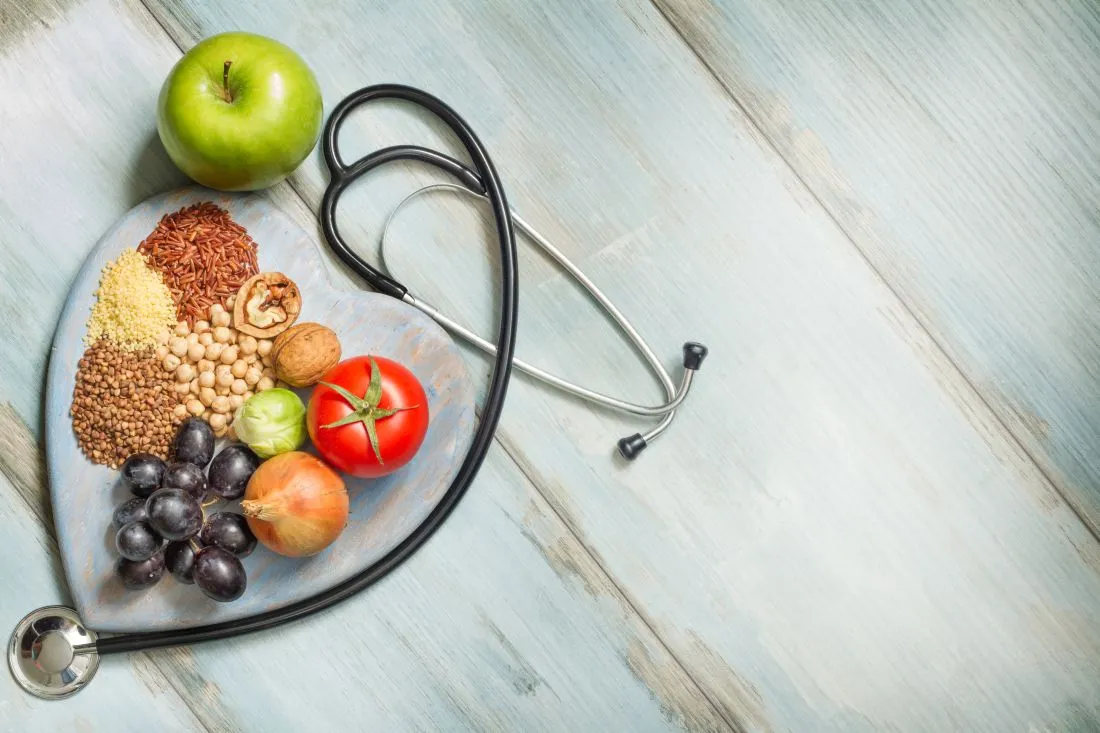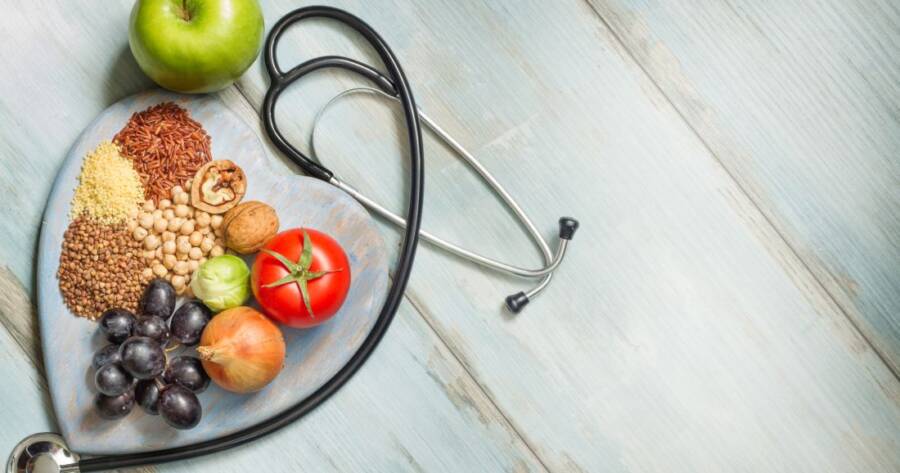Cholesterol is a waxy substance helps the body make hormones and vitamin D, but high levels can cause plaque deposits in arteries. These deposits narrow coronary arteries and make it difficult for blood to pump through the body.
High cholesterol is a major risk factor for heart disease, peripheral artery disease, and stroke, but there are steps you can take to reduce your LDL (bad) cholesterol and reduce your risk factors for heart disease. Here’s what you should know about improving your cholesterol levels.
The Role of Cholesterol in the Body
The human body needs a healthy amount of cholesterol to function. This fatty substance is produced by the liver and absorbed from food then distributed throughout the body to make hormones and vitamin D.
Cholesterol is distributed through the blood by lipoproteins. There are two types of lipoproteins:
- Low-density lipoproteins (LDL) or “bad cholesterol” transport cholesterol where it’s needed. If there is too much cholesterol in the blood, it gets deposited in arteries and forms dangerous clots.
- High-density lipoproteins (HDL) or “good cholesterol” takes extra cholesterol from cells and tissue and returns it to the liver.
When your LDL levels are too high and the HDL levels are too low, your cardiovascular risks are much higher. Rising LDL cholesterol levels are related to atherosclerosis, or a condition in which LDL cholesterol combines with other substances and forms plaques that build up in the arteries. This can lead to angina (chest pains), heart attack, stroke, and coronary artery disease.
Symptoms of High Cholesterol
There are no symptoms of high cholesterol, but the consequences — stroke, heart disease, and peripheral artery disease — do have symptoms. The most common symptoms of heart disease include:
- Chest discomfort, which may feel like pressure in your chest, pain, or tightness.
- Heartburn, indigestion, or nausea may be signs of a heart attack.
- Pain radiating down the left arm.
- Jaw or throat pain.
- Feeling dizzy or lightheaded which may be caused by a drop in blood pressure because the heart can’t pump properly.
- Breaking out in a cold sweat.
- Long-lasting cough with pink or white mucus. This occurs when the heart is struggling and causes blood to back up in the lungs.
- Irregular heart beat or feeling like your heart is beating out of your chest.
- Swollen ankles, legs, and feet. This may indicate your heart can’t pump fast enough, allowing blood to back up and cause bloating.
How to Lower Your Cholesterol
Lowering your cholesterol level may require a combination of lifestyle changes and treatments from a physician. Along with changing your diet and getting regular physical activity, your doctor may prescribe medication called statins to bring down your LDL levels and reduce your risk of heart disease.
Statins are a class of lipid-reducing drugs that reduce triglycerides and cholesterol in the blood by blocking a chemical in the liver that makes cholesterol. These drugs, like Lipitor and Zocor, can reduce the risk of stroke, heart attack, and premature death by around 25-35% but they do come with risks. About 10% of statin users develop muscle pain and aches. Other risks and side effects include increased liver enzymes, worsening asthma, potential birth defects in pregnant women, and a risk of muscle damage while taking statins with antibiotics or antifungal medications.
A physician may also prescribe niacin, a B vitamin that is very effective at lowering triglyceride and LDL cholesterol levels and raises HDL levels. Niacin is taken in tablet form 1-3 times a day. Niacin is very powerful and should always be administered under the care of a doctor as careful dosage is important. Niacin doses high enough to affect cholesterol levels can also increase the risk of liver damage and gout. It can also increase blood sugar levels which can be harmful to patients with type 2 diabetes.
Diet for Lowering Cholesterol
The safest and most effective way to reduce your cholesterol levels is through dietary changes. A diet to lower cholesterol focuses on whole foods high in fiber, which reduces your LDL cholesterol, while avoiding cholesterol-rich foods like red meat. The following tips can help you build a healthy and balanced diet that supports healthy blood cholesterol levels.
Foods That Lower Cholesterol
The following foods can help you naturally reduce your bad cholesterol levels.
- Red wine. Tempranillo red grapes, which are used to make wine like Rioja, are high in fiber and have been found to reduce cholesterol levels, according to a study conducted at Universidad Complutense de Madrid in Spain. The study found that people who drank wine made from this grape experienced a 9% decline in LDL levels.
- Black tea. A USDA study found that drinking black tea every day can lower blood lipid levels by up to 10% in three weeks.
- A study conducted at Arizona State University Polytechnic found eating a half-cup of beans like kidney, black, or pinto beans every day reduces cholesterol levels by up to 8%.
- Adding two servings of oats to your diet each day can lower your LDL cholesterol by 5.3% in 6 weeks, according to a major study. Oats are high in beta-glucan, a substance that absorbs LDL cholesterol so it can be excreted.
- Nuts are high in fat, but it’s the good kind. A study published in the American Journal of Clinical Nutrition found people who ate 1.5 ounces of whole walnuts every day for 4 weeks had their cholesterol drop by 5.4% and their LDL cholesterol increase by 9.3%.
- Cholesterol in your diet always comes from animal products, but that doesn’t mean you need to cut meat out entirely. Salmon and other fatty fish are high in Omega-3 fats that have been found to reduce the risk for dementia, heart disease, and more. A study conducted at Loma Linda University found that replacing saturated fats (found in red meat) with omega-3 fats raised good cholesterol by up to 4%.
- Want an excuse to eat more chocolate? Bittersweet and dark chocolates — not milk chocolate — are high in antioxidants that increase good cholesterol levels. A recent study found people who consumed cocoa powder for 12 weeks had their good cholesterol levels increase by 24%.
Conclusion
If you have been diagnosed with high cholesterol, you aren’t alone. About 33% of Americans have high cholesterol, but diet changes alone can reduce your cholesterol levels by up to 15%. Making smart food choices and replacing unwise food choices can help you keep your cholesterol levels under control and live a healthier life. If dietary changes aren’t enough to bring your cholesterol under control, a physician can prescribe medication like statins that will help you reach your goal and enjoy improved heart health.
 udra11 / Shutterstock.com
udra11 / Shutterstock.com


